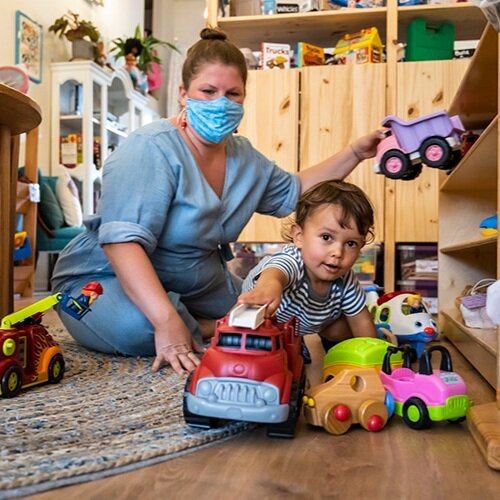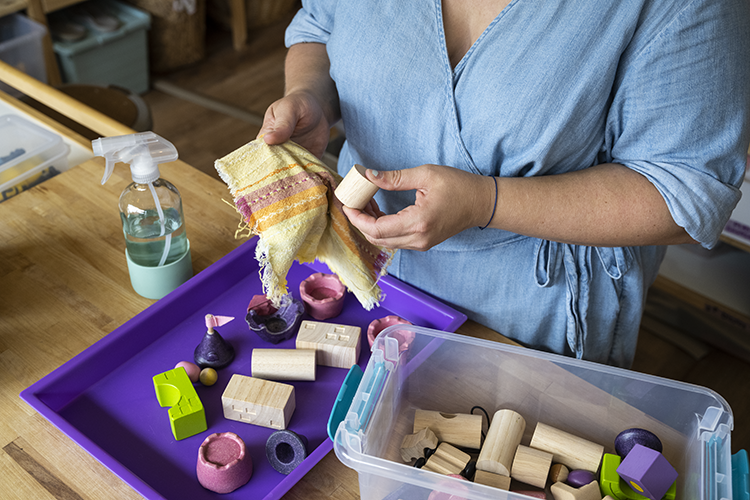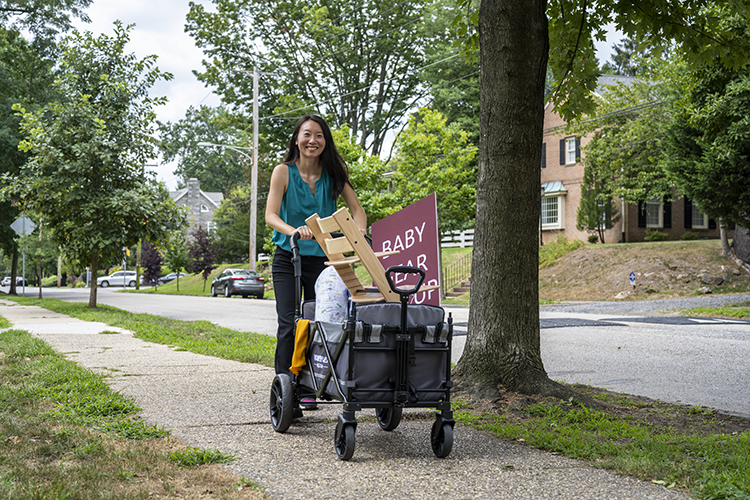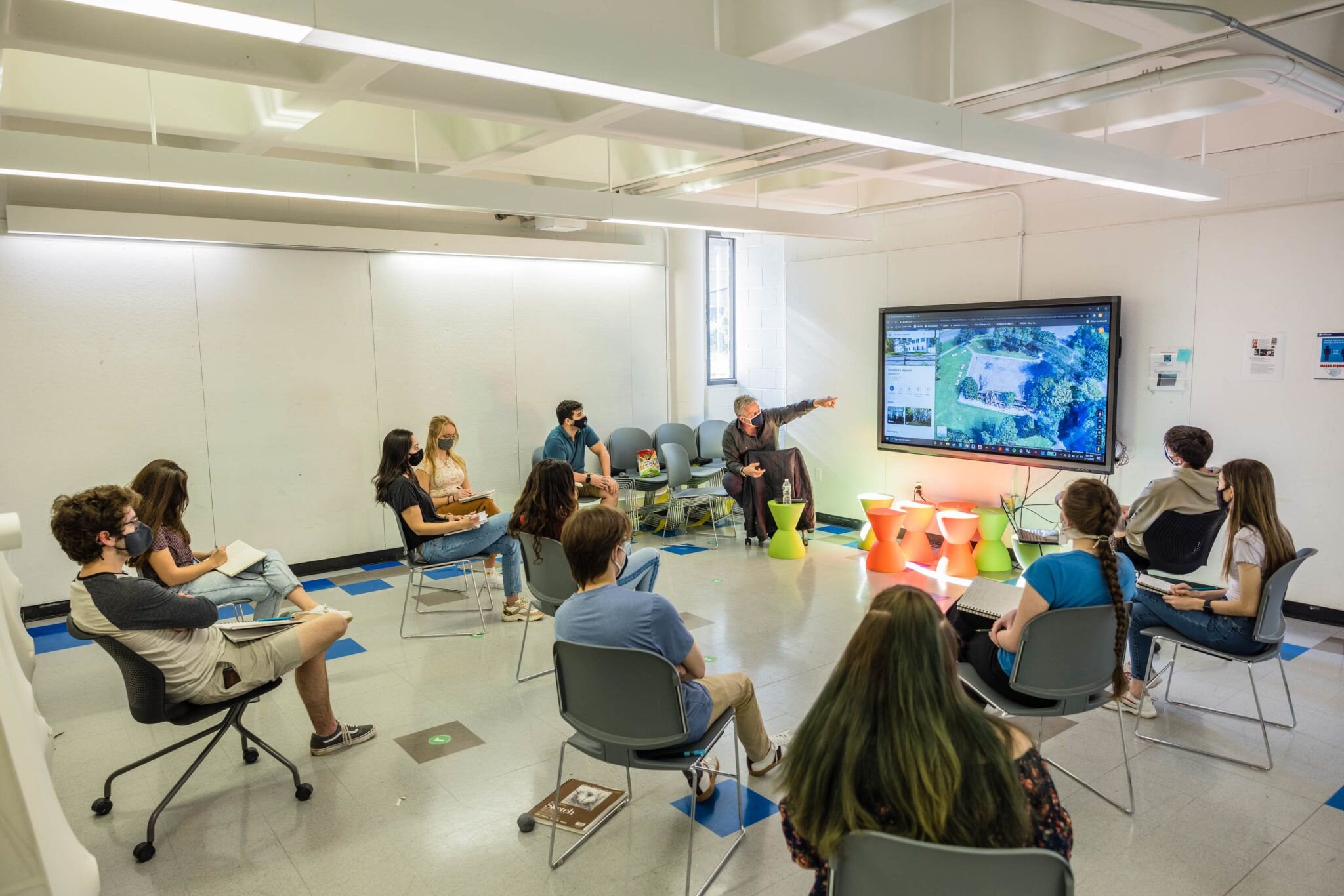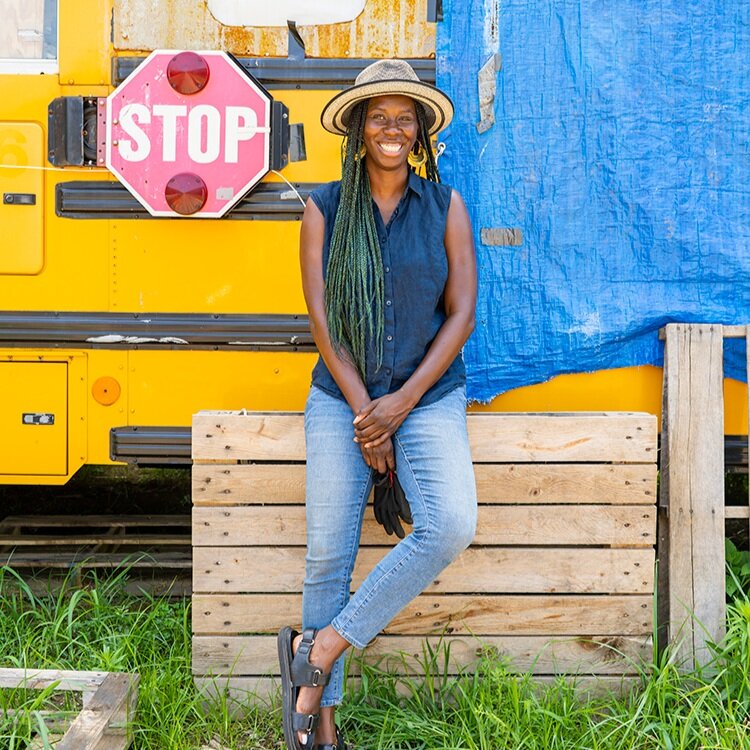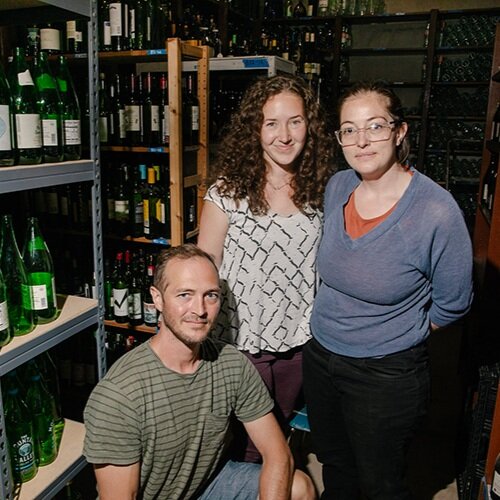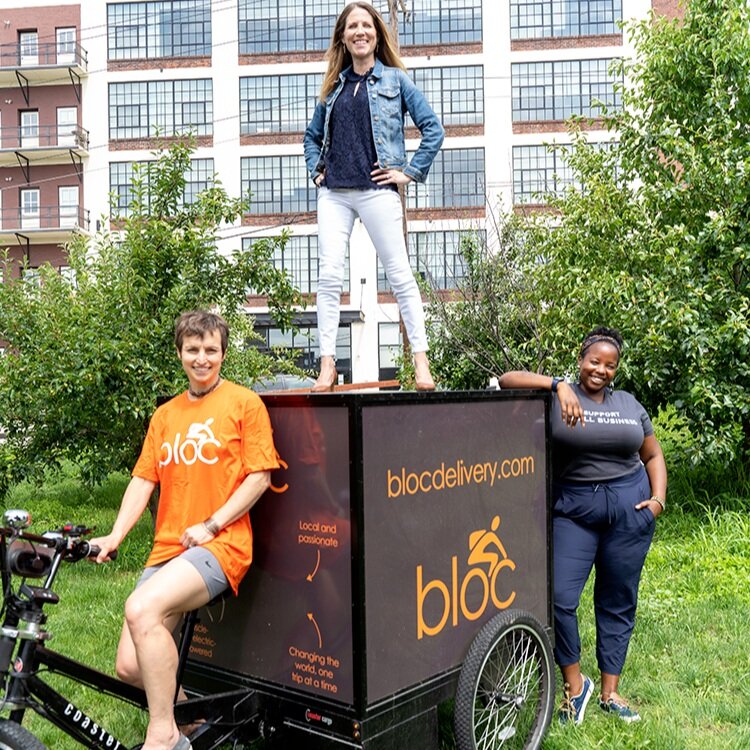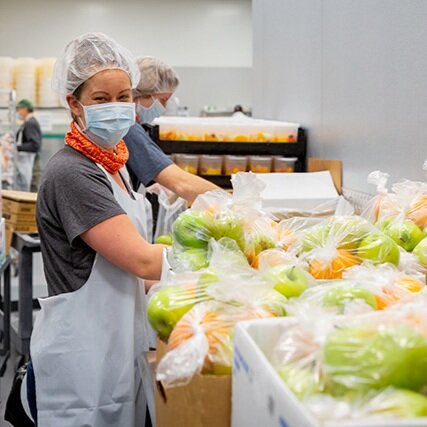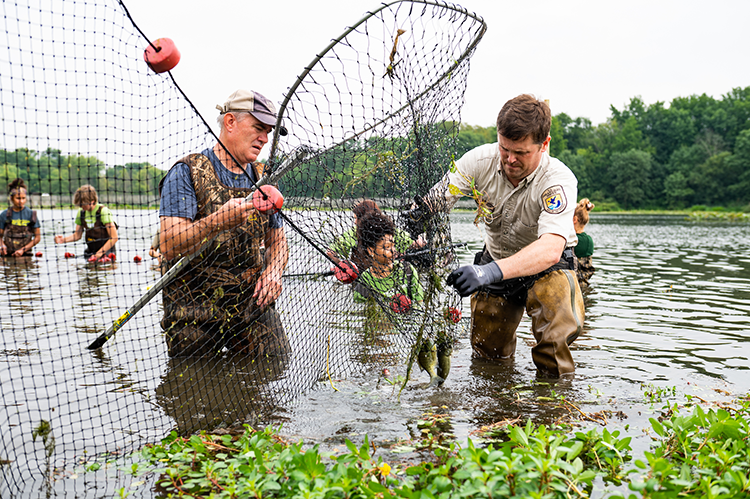It’s a Tuesday morning in August, and women with young children are filing into Rutabaga Toy Library in East Falls, which is hosting a circle time for parents. The welcoming and well-lit space is a testament to the sharp eye that founder Krystal Cunillera developed in the 16 years she spent as a videographer.
Like most successful children’s outlets, the shelves of Rutabaga are neatly arranged with a dazzling array of board games, stacking toys, miniature houses, bikes and books. But there’s one thing noticeably absent from each item on display.
A price tag.
That’s because the majority of items in the store are not for sale. You can, however, borrow them with a membership.
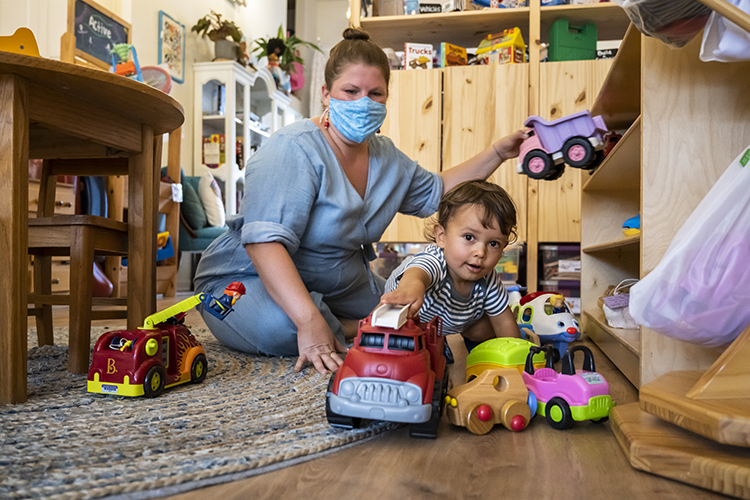
For $45 a month, members can bring home four different toys that they can keep for up to four weeks. Then (or any time before) the toys can be returned and new ones chosen. For an additional $10 a month, two more toys can be brought home, which is appealing to people with more than one child. Toys can be picked up at the East Falls location or at Beehive at BOK in South Philadelphia, or delivered to homes—in East Falls for free and to seven nearby zip codes for an extra $5 fee.
Rutabaga—named after a character from the children’s show “Tumble Leaf”—was founded in November 2019 by Cunillera, a mother of a 7-year-old and 5-year-old.
The concept of a toy library addresses two different yet related problems environmentally conscious parents face. Within the home, parents battle—valiantly, but largely unsuccessfully—with clutter. Even the most beloved toys lose their luster, and graduate from prized possession to a hunk of plastic in a cloth basket from IKEA.
The second of their problems is trying to avoid the astonishing amount of waste the industry produces.
“Knowing that their toys are going into somebody else’s hands helps us think about sharing.”
— Krystal Cunillera, Rutabaga Toy Library founder
Toy manufacturing is the most plastic-intensive industry in the world. A United Nations Environmental Programme report estimates that the toy industry releases 48 tons of CO2 emissions and uses 40 tons of plastic for every $1 million in revenue. According to Statista, the baby-care products market, which includes strollers, soothers and highchairs, was projected to be worth more than $67 billion in 2020, and is projected to continue growing.
Cunillera’s goal in creating the library was to teach children and their families a radical way of treating toys and participating in consumerism through the idea of sharing.
“Parents typically buy everything and think that’s how they make their children smart and fulfilled. Children learn that things are disposable and that they don’t need to care for their toys,” says Cunillera. “I think a toy library teaches children to be responsible, to care for their belongings. Knowing that their toys are going into somebody else’s hands helps us think about sharing.”
Even with that knowledge, toys are sometimes broken, but Cunillera prides herself on toy repair, rather than “just tossing it.” She also relishes helping parents pick toys for their kids. “Members that have been here for a while, I sort of know what their kids like, like a personal shopper.”
Rutabaga operates as a communal space for parents and children to meet up for family game night or “sidewalk storytime + indoor playtime,” or just to bump into each other while picking up or returning toys.
For parent Stevonne Ratliff, who recently moved to Philadelphia from California, participating in the toy library has been a great way to meet other new parents.
“Not only do you get the toys here,” says Ratliff, “but you get access to meeting other parents and having your child play with other kids. I love that.”
Cunillera also wants the Rutabaga community to be a judgement-free space for parents. While the community does not require parents to be environmentalists, it does provide space for families to learn about why it is important to respect the Earth through purchasing habits.
“Parenting is hard, so I accept parents where they are,” says Cunillera. “I just make the purpose [of Rutabaga] community and sharing, rather than being ‘environmentalist’ or ‘eco-friendly’ or putting these labels on things that could be really stigmatizing.”
Knowing that $45 a month is out of reach for many families, Cunillera set up a scholarship fund to reduce barriers to sustainable choices and toy sharing.
Families can apply for the scholarship fund on Rutabaga’s website. Those involved in the scholarship program receive a reduced price or free membership. The amount of funding provided through the scholarship program is currently based upon donations and fundraising initiatives.
Cunillera believes the scholarship fund is beneficial both to individual families and to the entire community, as it lowers the economic barrier to create a true representation of all neighbors.
“The Rutabaga scholarship program not only helps to bridge the gap of accessibility to sustainable parenting, but more importantly, it helps to create a whole community.”
“I am hoping that this is a new way to approach stuff and materialism.”
— Bo Zhao, Baby Gear Group founder
Savings and Sustainability
Bo Zhao founded Baby Gear Group in November 2020, a library allowing members to borrow strollers, bassinets, bouncers, swings, carriers, highchairs and more. She founded the company as a response to the stress she felt as a new parent in 2018 trying to properly outfit her home.
“You really go down huge rabbit holes trying to figure out the best stroller or the best bassinet. You’re also trying to balance what’s in your budget and what isn’t,” she says. “As I was going through this, I was just wishing that there was some sort of service that would just let me try things, and that when I was done with it, it could magically disappear.”
The premise of Zhao’s idea is to allow parents to try multiple items cheaply, so that they don’t have to go through the process of reselling or giving away everything that their baby doesn’t like. This business concept limits parents’ waste of time, energy and resources while making sure that items get the most possible use instead of collecting dust in a basement.
For Lisa, mother of a 3-year-old, borrowing from Baby Gear Group has been a way to find the perfect items for her child while avoiding the clutter and expense.
“Every baby is different. Every baby likes something different,” she says. “… [I]t’s taken the pressure off of us as parents.”
Baby Gear Group has three different plans geared to support newborns and toddlers. Their least expensive plan, called the Mini-Membership, starts at $49 per month.
One of Zhao’s priorities is making the cost of baby care manageable for all families, which is why the company operates on a “money back value guarantee.” This means that at the end of a membership, Zhao analyzes the cost and makes sure that the fees do not exceed 50% of the retail value of all of the products rented. If the family has spent over that amount on membership, Zhao refunds the extra money. “The last thing I want is for parents to feel like they were better off buying,” says Zhao. “So I guarantee you’ll save at least 50% versus buying something retail.”
Plus, it’s convenient. Items from Zhao’s library are shipped right to a family’s home as soon as they are rented.
The low-price guarantee and the convenience of getting a wide variety of items delivered to your door is designed to make the sustainable choice also the easy choice for parents across Philadelphia and the Main Line. Zhao hopes to make sustainability possible for parents of young children, for whom it is often the most difficult to limit waste.
Ease and accessibility will help circular movements like this spread, and Zhao hopes that it will also create new ideas about what it means to be a consumer.
“I am hoping that this is a new way to approach stuff and materialism,” she says. “So maybe we can have a new attitude towards taking care of and stewarding items for others to be able to use.”
Ripple Effect
Richard Booser, environmental economics professor at Muhlenberg College, sees the potential of circular businesses to limit the production and waste of goods, but believes their success requires a shift in consumer mindset and culture.
“You can start a movement where people start looking away from low price points and think, ‘I’m not going to own it and I’m going to pay the same amount, but who cares? I don’t need to own it, because it just clutters up my house or raises my trash collection bills and then fills up a landfill,’” he says.
Booser says shifting the culture around consumption is a huge undertaking, but these businesses hold promise. “You’ve got to start somewhere. And if you have one or two of these in every major city, it catches on.”

